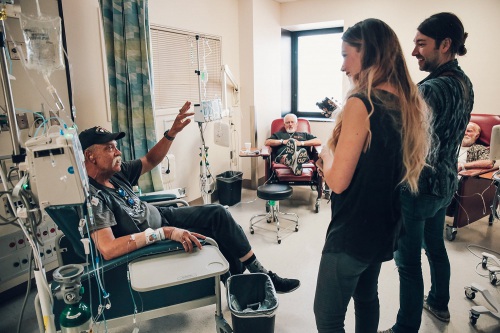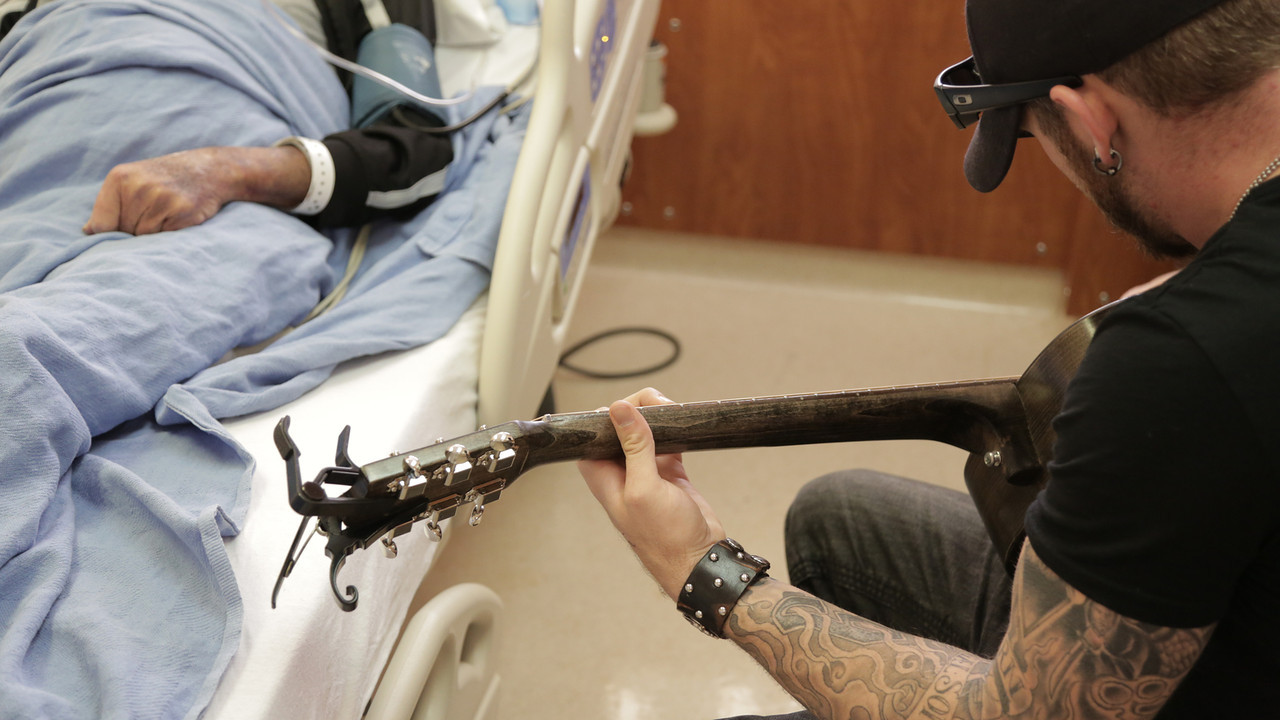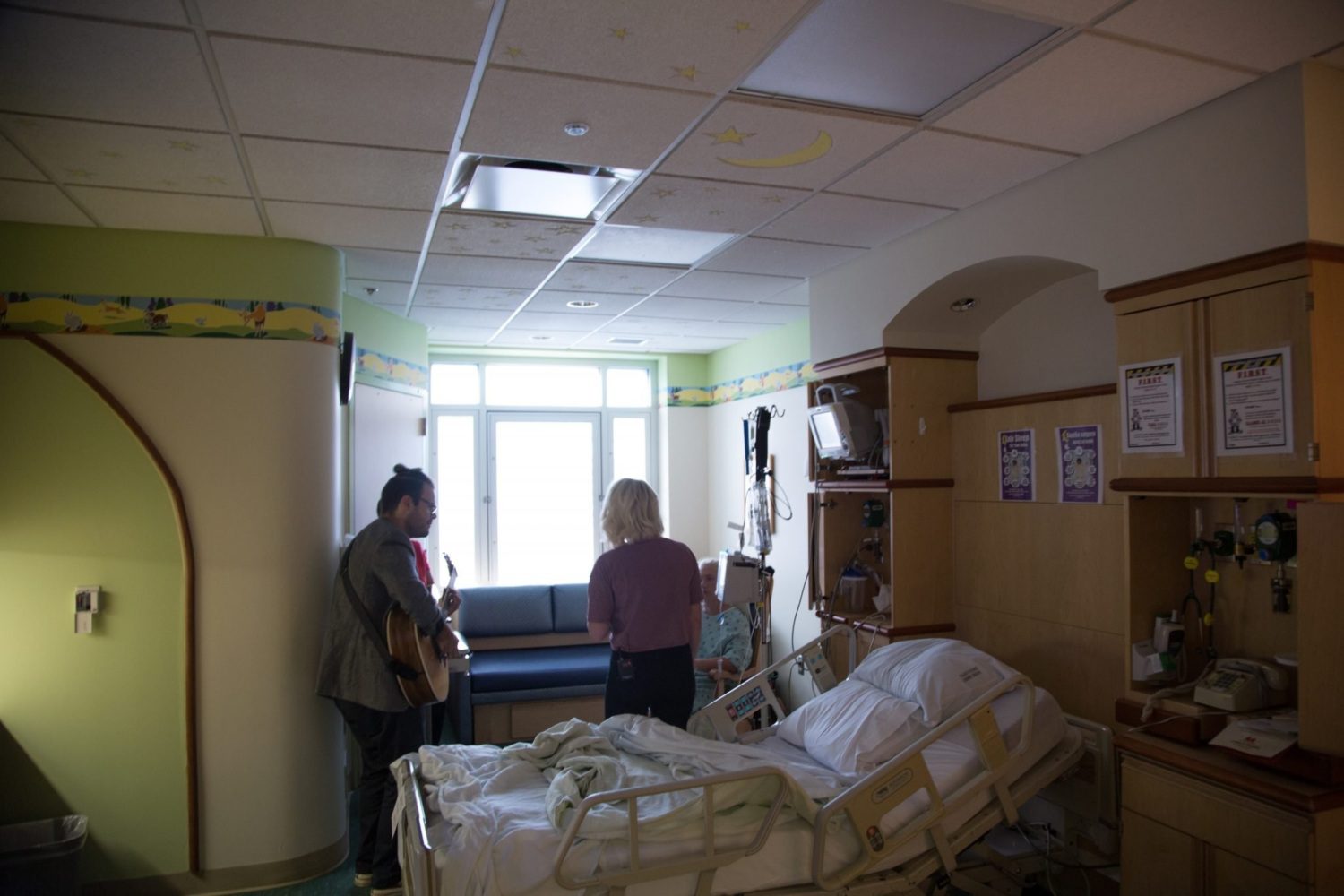
Music Hits the Right Note for Easing Anxiety in Dementia Patients
Music has an unparalleled ability to transport us to another time in our lives. Memories and experiences flood our minds at the sound of a few familiar notes. This proves to be especially important for people living with Dementia.
Research published by the University of Utah showed that people living with Dementia would sometimes find themselves in a world that’s unfamiliar to them, which can lead to much disorientation and anxiety. But when these individuals are exposed to a meaningful song, it can stimulate areas of the brain that are not functioning fully due to their condition.
When you have that dissociation between where you’re sitting today and where you think you should be, that creates anxiety because you can’t reconcile the two,” says Kevin Jameson, Founder of the Dementia Society of America®. “Like, why am I here when I need to be there? But if I can let the music take me there, it’s almost as if I’m going through the history of my life. And I think that touches people very powerfully.
Another benefit of music is, whether you are physically moving or lying still, listening to music is an active experience for the brain. Research from the University of Toronto shows this activity level within the brain can positively affect brain plasticity for people living with Dementia. In this study, patients with early stages of cognitive decline listened to music personal to them and their life stories. They found that the music activated certain neural networks, and over a period of time, they saw different levels of activation throughout the brain. According to Jameson, old favorite songs are not the only way to see improvement in brain plasticity. “I believe that you do need to listen to new music as well. It’s great to have a familiar song, but it’s even better sometimes to be introduced to something new,” he says. “Neuroplasticity is about building new brain cells. It’s been proven that that can happen within the hippocampus, the memory gateway deep inside the brain, even as you age, and that’s a good thing. You can still learn from new experiences later in life, regardless of your cognitive abilities.”

One particular challenge facing people who are living with Dementia and their caregivers is elopement. Elopement is the act of leaving a safe space undetected and is driven by the intention of the individual to go someplace else. When the person first sets out, they have a purpose and a direction, however, as time progresses they can often become disoriented and lost. Unfortunately, it’s estimated that approximately one in three people in that situation are never found or are not found alive. “Music can be used as a tool to redirect a person’s thoughts from this intention,” says Jameson, “It doesn’t eliminate the risk, but it does diminish it.”
Research from the University of California – Davis may reinforce the approach of using music in these dangerous situations. Researchers found that familiar music will activate specific regions of the brain that are tied to memories and emotions, particularly the medial prefrontal cortex. Because this is one of the last areas to experience a decline over the course of a disease like Alzheimer’s, and other leading causes of Dementia, the long-term memories associated with music remain strong.
What seems to happen is that a piece of familiar music serves as a soundtrack for a mental movie that starts playing in our head. It calls back memories of a particular person or place, and you might all of a sudden see that person’s face in your ‘mind’s eye.’
October is National KeepSafe Awareness Month, a time to increase understanding about the realities of critical wandering and elopement. October 20th is designated as National KeepSafe Day, a tribute to first responders’ 10-20 code, essentially, “What’s your location?” In observance of this important month, the Dementia Society of America® created the Operation KeepSafe® initiative. People living with Dementia are provided with a special medical ID kit that is connected to an online profile with their pertinent information, which can include medications, allergies and more. This gives first responders access to critical identification information sooner, helping them reunite the individual with loved ones. “Operation KeepSafe® came about from real-world experiences that many people have. If you can provide a key tag or a simple bracelet for someone that is not easily removed, they’ll hopefully wear it. We try to give people an easy path to take action in getting the medical IDs,” says Jameson. The Operation KeepSafe iD® kits are provided to anyone in need. “Right now, we’re nearly outstripping our funding for the program, but we’re going to keep doing it,” he adds.
The Dementia Society of America® was founded on Jameson’s personal experience in caring for his late wife with Dementia. The organization works to bring awareness to the condition and promote Dementia education for people who are living with it, their families, and caregivers. Educational programs include the four pillars of nonmedical therapy: music, art, movement, and touch. “All of these things, I think, are valuable to people no matter where they are in the trajectory of their life when they’re living with Dementia,” says Jameson, “These nonmedical approaches can really touch people deeply.”
